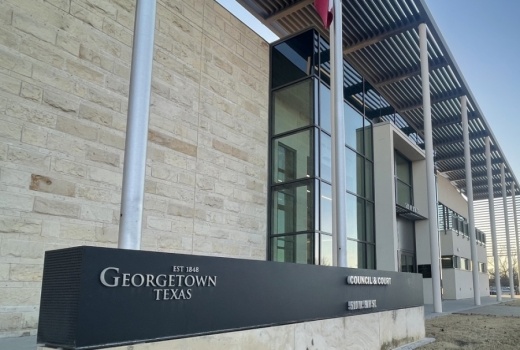The gist
The rate increases for water and wastewater will be based on a "smoothed” rate adjustment over the next five years, Chief Financial Officer Leigh Wallace said.
Wallace said the midyear increases, which would take effect on April 1, are an increase to the base water rate.
The average Georgetown residential customer within city limits will see a water base rate increase of $10.10, according to city documents.
The sewer rate will also be a base rate increase, Wallace said.
The average residential customer within city limits will see a base rate increase of $4.95, according to city documents.
Some context
The midyear water rate increases will help diversify the water supply with the pursuit of the groundwater reservation agreement with EPCOR that costs $10 million per year, Wallace said.
The groundwater reservation agreement—adopted by City Council in August—gives the city water security for a span of 60 years, according to previous reporting by Community Impact.
The increased rates will also:
- Rehabilitate and expand water treatment and transmission infrastructure
- Improve resiliency with backup power to critical infrastructure
- Manage inflation and interest rates
The backstory
The Water Utility Advisory Board recommended rate increases to City Council in January, according to city documents.
City Council then discussed two options for rate increases at a Feb. 27 meeting, with support for a smooth rate option over the next five years for water and wastewater, according to previous reporting for Community Impact.
What’s next?
The ordinances will be brought back before City Council on March 26 for a second reading, with the first rate increases going into effect on April 1, if adopted.
Additional rate increases are expected to take effect on Oct. 1, and proposed increases will be brought forward as part of the fiscal year 2025-26 budget process, according to city documents.





